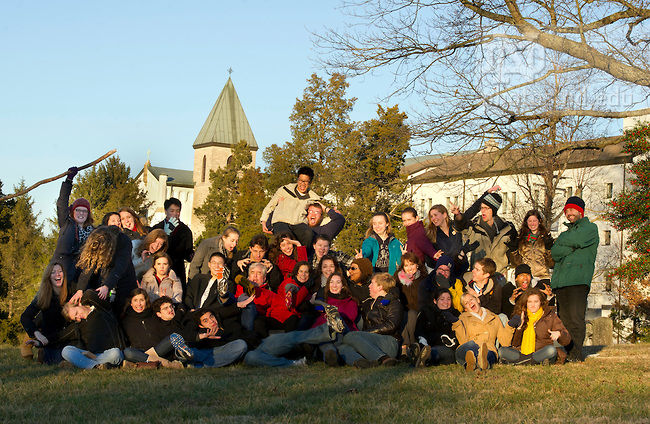Over the past couple of years, I’ve struggled with the transition from Lent to Easter. I think it’s because I spend more time thinking about living into Lent than the season of Easter. After all, Easter’s not a celebration that lasts just for a day--but fifty.
But the day itself is pretty cool. The smells, the bells..the weather...if I’m lucky. It feels like a fresh start. But a few weeks into the season, I’ve already found myself returning to ‘normal.’
At 26, my normal is filled with more bad habits than I would like to admit. I’m busy; I overcommit; I use technology more than I should.
But I trust Easter’s message, that old ways are dead and new life reigns. This can’t just be an intellectual exercise, but something that is lived. Here’s three ideas about how to do it.
Cultivate practices of gratitude
During Easter, we are able to see Jesus for who he really is--the one who has redeemed humanity. Under the light of his truth, we are invited to celebrate and remember who we are and who we are called to be.
Chances are, we’ve had mentors, coaches, friends, or family members who’ve helped us along the way. They’ve pushed and challenged us to see past our own selfish habits and tendencies to see that these things don’t define us. They’ve helped us to see the essential truth--that we are good and uniquely radiate God’s light. By their light, we’ve been able to more uniquely radiate our own.
Take some time to write a note or make a phone call to someone who has done this for you. Go into detail. What have they done? What have they helped you to see? As Meister Eckhart once wrote, “If the only prayer you say in your life is ‘Thank You,’ that would suffice.”
Gather together to share a meal (or favorite beverage)
During the Easter season, we read from the Acts of the Apostles in place of the Old Testament readings. Acts recounts the experiences of those first Christian communities and their own challenges living post-Easter.
Early in Acts, a central structure emerges for their new life together: “Every day they devoted themselves to meeting together in the temple area and to breaking bread in their homes.” (Acts 2:46).
By these practices, these first communities declared who they were--Christians. Breaking bread together served not only to nourish their bodies, but witnessed that Christ was still very much alive: “For where two or three are gathered together in my name, there am I in the midst of them” (Mt 18:20).
Breaking bread builds up our own communities today. So, grab a group of friends and go do it. Find a restaurant, bar, or use your home. Put your cell-phones away, look another person in the eye and just talk.
Wherever you are, gathering over a meal or drink creates the space by which we can turn from those practices of self-isolation toward bonds of communion. Over a drink or a meal, we get the chance to linger. By conversing, we create the space to share stories and to possibly see each other in a new light.
Put down the screen and go outside
I just returned from a short silent retreat at the Abbey of Gethsemani. For that weekend, from late Friday afternoon to Sunday morning, I turned off my phone. This was big for me because, truth be told, I spend a lot of my day glued to a screen.
If it’s a day of the week that ends in ‘y’, I’ll spend countless hours answering emails, consuming news and scrolling through endless feeds of social media. On this retreat, I didn’t do any of that. I just left my phone in my room.
One day I found myself on the trail right outside the Abbey. Without the familiar sensation of having my phone close at bay, I found myself noticing other things. I marvelled at the height and canopy of the trees which protected me from the light falling rain. I silently cursed the slight incline on the path that began to put strain on my legs. I felt grateful for the stick I carried as it steadied my stride and then, in turn, loosened my strain.
I spend a lot of my time looking at things that are carefully curated or filtered. On this walk, however, I appreciated the sensations and sights that glowed beautifully not because of a lens, filter or screen, but because they were real.
Find some woods and go walking. Leave your phone behind. Take some space in which you can really notice what’s there--unfiltered.
